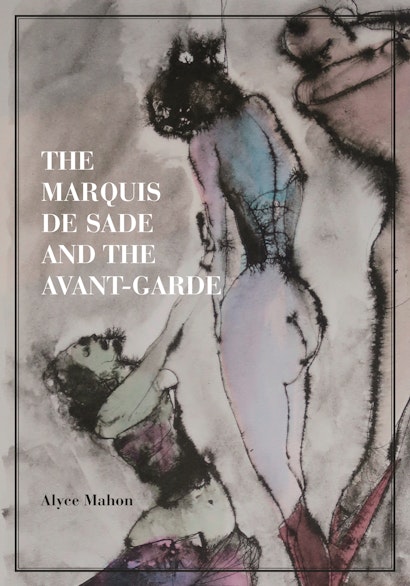Join the inaugural event in the Modern and Contemporary Art Research Seminar Series in the Department of History of Art, University of Cambridge to celebrate the launch of Dr Alyce Mahon’s book The Marquis de Sade and the Avant-Garde with Princeton University Press. Dr Alyce Mahon will present material from her new book and will be in conversation with Dr Sofia Gotti.
Alyce Mahon is a Reader in Modern & Contemporary Art History at the University of Cambridge. She is the author of the monographs Surrealism and the Politics of Eros, 1938-1968 (Thames & Hudson, 2005), Eroticism & Art (Oxford University Press, 2005 and 2007) and The Marquis de Sade and the Avant-Garde (Princeton University Press, 2020), as well as numerous essays on Surrealism, performance art, and feminist art practice. She is the curator of Dorothea Tanning, the first major retrospective exhibition of the American Surrealist, for the Museo Reina Sofia (Oct. 3, 2018 –Jan. 7, 2019) and Tate Modern (Feb. 27–June 6, 2019), and has served as curatorial advisor and author for many international Surrealist exhibitions - most recently for Fantastic Women – Surreal Worlds (Schirn Kusnthalle, Frankfurt and Louisiana Museumof Modern Art, Humlebæk, 2020), Leonor Fini: Theatre of Desire 1930-1990, Museum of Sex, New York (2018- 2019). Silent Partners: Artist and Mannequin from Function to Fetish (Fitzwilliam Museum, Cambridge and Musée Bourdelle, Paris, 2015), and Leonora Carrington (Irish Museum of Modern Art, Dublin, 2013). She is currently completing a monograph on Dorothea Tanning for Yale University Press.
Sofia Gotti is a Leverhulme Early Career Fellow in the Department of History of Art, University of Cambridge. She works as a curator and a scholar specialising in Latin American contemporary and feminist art practices. Her PhD was an AHRC funded collaborative studentship between Tate Modern and University of the Arts London (UAL) under the aegis of the exhibition The World Goes Pop (Tate Modern, 2015). During the write-up year of her doctorate, she was awarded the Hilla Rebay International Curatorial Fellowship by the Solomon R. Guggenheim Foundation. Since then, she has taught in the UK at The Courtauld Institute of Art, and at Milan’s Nuova Accademia delle Belle Arti (NABA). As a freelance curator, she has collaborated with institutions and galleries including The Feminist Institute, Castello di Rivoli, FM-Centre for Contemporary Art, Mendes Wood DM, Blum&Poe, and Cecilia Brunson Projects.
About the Book
The writings of the Marquis de Sade (1740–1814) present a libertine philosophy of sexual excess and human suffering that refuses to make any concession to law, religion, or public decency. In this groundbreaking cultural history, Alyce Mahon traces how artists of the twentieth century turned to Sade to explore political, sexual, and psychological terror, adapting his imagery of the excessively sexual and terrorized body as a means of liberation from systems of power.
Mahon shows how avant-garde artists, writers, dramatists, and filmmakers drew on Sade’s “philosophy in the bedroom” to challenge oppressive regimes and their restrictive codes and conventions of gender and sexuality. She provides close analyses of early illustrated editions of Sade’s works and looks at drawings, paintings, and photographs by leading surrealists such as André Masson, Leonor Fini, and Man Ray. She explains how Sade’s ideas were reflected in the writings of Guillaume Apollinaire and the fiction of Anne Desclos, who wrote her erotic novel, Story of O, as a love letter to critic Jean Paulhan, an admirer of Sade. Mahon explores how Sade influenced the happenings of Jean-Jacques Lebel, the theater of Peter Brook, the cinema of Pier Paolo Pasolini, and the multimedia art of Paul Chan. She also discusses responses to Sade by feminist theorists such as Simone de Beauvoir, Susan Sontag, and Angela Carter.
Beautifully illustrated, The Marquis de Sade and the Avant-Garde demonstrates that Sade inspired generations of artists to imagine new utopian visions of living, push the boundaries of the body and the body politic, and portray the unthinkable in their art.
